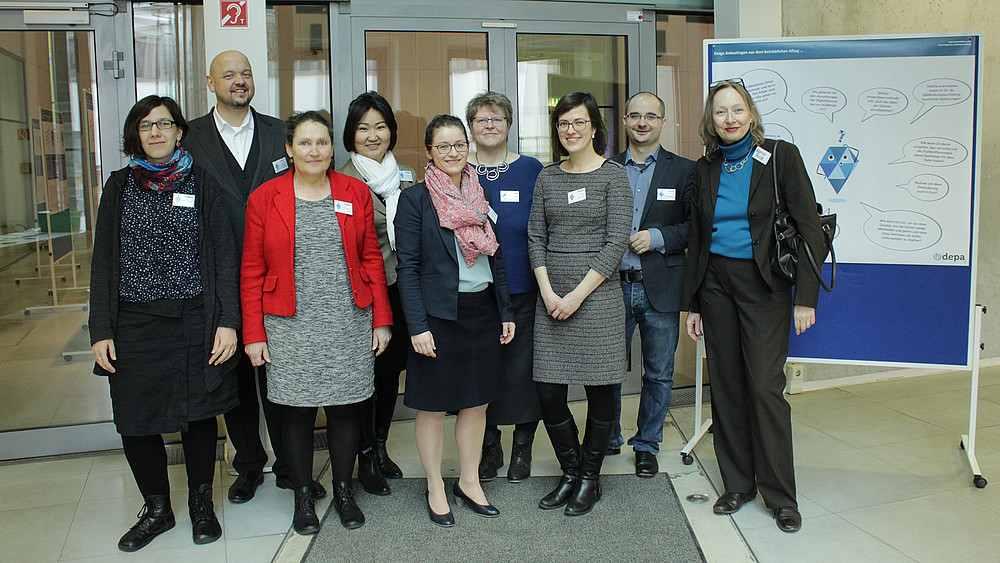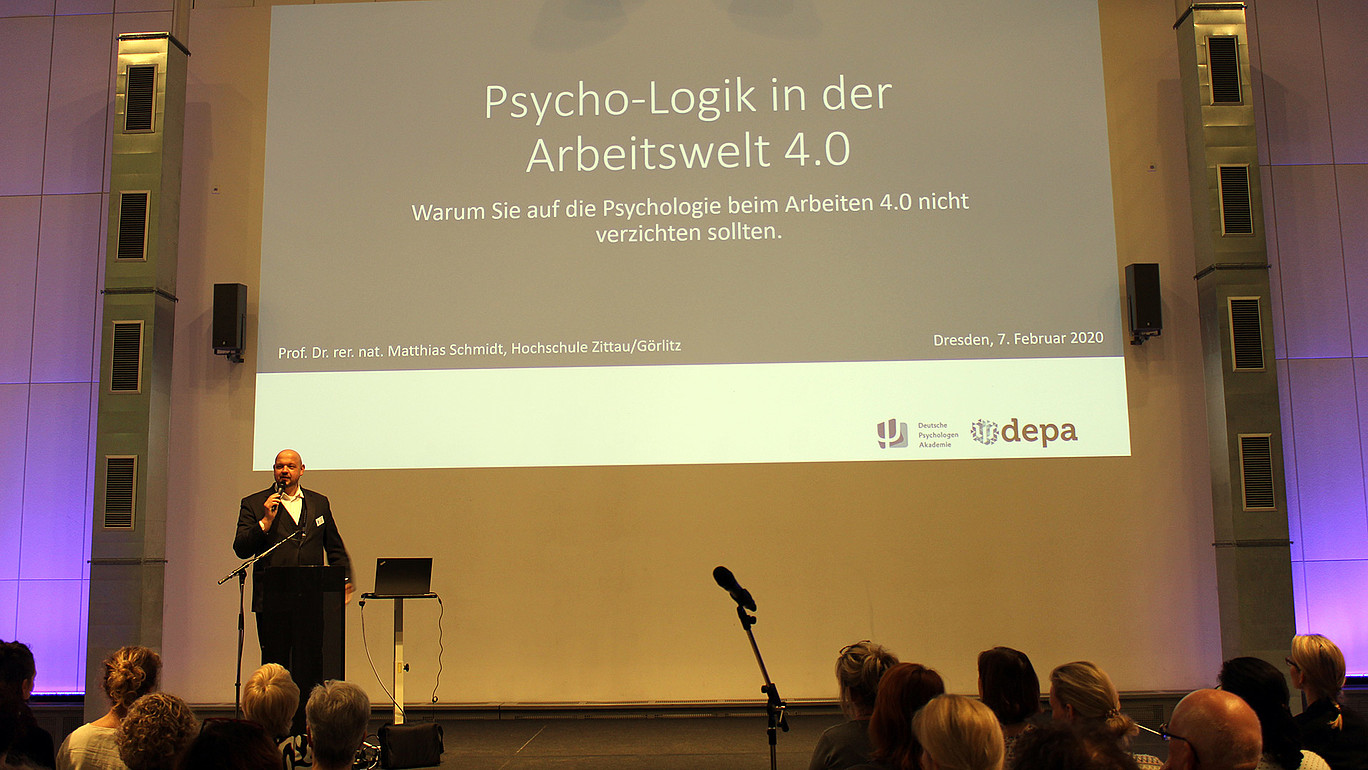The further training concept "Psychological work design - intensive further training for operational practice (IFPA) was presented to the public for the first time.

Many companies are currently looking for ways to manage changing work requirements in a good way while taking all employees with them. At the same time, it is important to be attractive to skilled workers, reduce high sickness rates and reduce health hazards. In practice, there is often a lack of occupational psychology knowledge to measure and shape the effects of the various work factors on people.
Prof. Dr. rer. nat. Matthias Schmidt and graduate psychologist Katharina Roitzsch from the Zittau/Görlitz University of Applied Sciences are members of the Dresden Expert Network for Psychological Work Design (depa). In recent years, the network has developed an intensive further training course with the German Psychology Academy (DPA ) and now offers it nationwide. On February 7, 2020, the further training concept "Psychological work design - intensive further training for operational practice (IFPA)" was presented to a broad public for the first time. Over 60 HR managers, managing directors and experts in work and organizational design attended the event at the Hygiene Museum in Dresden. Following a keynote speech on "Psycho-logic in the world of work 4.0" by Prof. Dr. Matthias Schmidt, practical workshops were held on current topics relating to the working world of tomorrow.
In the future, various skills will be required, which are taught in the modules of the intensive training course, including
In the intensive further training course, participants acquire skills for the design of human work. This enables them to initiate, implement and manage psychological work analysis and design projects in line with the latest scientific findings. At the end of the course, they will have applied important psychological analysis methods in practice. They will know the effect of various work factors on performance, learning and health. They will have practically applied screening procedures for work analysis and worked with the results. Accompanied by experienced occupational psychologists, they have found a suitable work design solution for their own problem. They are able to sustainably shape the implementation process in the organization.
